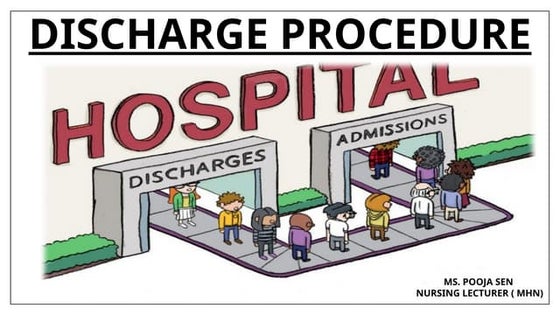The 21st Skills.pptx
Download as PPTX, PDF0 likes4 views
This document discusses challenges facing young people entering the 21st century workforce. It notes that 65% of today's primary school children will work in jobs that don't yet exist. Many current jobs will be replaced by computers and robots, including middle managers, salespeople, accountants, drivers, and cashiers. The skills needed for future jobs include creativity, social skills, and coding ability. Universities are changing to emphasize hybrid skills combining arts and STEM. They are focusing more on experiential learning like labs and incubators to develop skills like entrepreneurship that machines cannot replicate. The key is teaching students to be autonomous learners who can discover and research solutions themselves.
1 of 22
Download to read offline






















Recommended
Innovation and future thinking



Innovation and future thinkingDerek Wenmoth
Ėý
Presentation to the NZ School Trustees Association annual conference, Dunedin, 12 July 2019. Exploring the drivers of change and the responses required of educators and the schooling system to ensure our learners are 'future ready' as they leave school. Global Education Futures: Vision Summary



Global Education Futures: Vision SummaryPavel Luksha
Ėý
Global Education Futures is a collaborative vision building project involving over 500 educational experts from 50 countries. The document discusses key trends that will impact education in the 21st century such as digitalization, automation, environmental changes, and the rise of networked societies. It argues that the current educational model prepares students for the past, not the future, and that education must adapt to focus on developing skills like creativity, collaboration, lifelong learning, and emotional intelligence. A new model of learner-centered lifelong education is needed to support the development of these 21st century skills.Intra(Entre)preneurial Solutions to Recruit and Retain Tomorrow's Leaders



Intra(Entre)preneurial Solutions to Recruit and Retain Tomorrow's LeadersPeter Vogel
Ėý
What does the global labor market look like today as well as challenges and opportunities related to (a) youth unemployment and (b) widening gap between youth and adult unemployment.
What is the labor market predicted to look like in the near future. What are global trends?
Tomorrowâs labor market is defined by todayâs youth â the generations Y&Z
- Who are they and how are they different from todayâs workforce?
- Look at the spectrum, ranging from those threatened by unemployment to those who will be leading figures in tomorrowâs world.
Leaders of tomorrow: What are their career options and what do they want and expect from work?
Challenges and Opportunities for organizations when facing tomorrowâs leaders
What is the role of entrepreneurship & intrapreneurship
- How did the importance of the phenomenon change over the past two decades
- How can organizations harness the entrepreneurial potential of tomorrowâs leaders?
Trends in the domain of entrepreneurship â An ecosystem perspective
- What are entrepreneurial ecosystems and their main components
- What does this mean in an organizational context? How can organizations build internal ecosystems of innovativeness and intrapreneurship to attract, reward and retain tomorrowâs talents?
Implications and recommendations for organizations on how to best implement a culture and structure that will get them the best talents.
- Detailed analysis of the culture, nurturing the free flow of creative ideas, reward systems that foster entrepreneurialism, a novel approach of funding creative ideas, mechanisms to retain talents and tomorrowâs leaders. Our Digital Futures



Our Digital FuturesLisa Harris
Ėý
This document discusses how digital technologies are changing the future of work and the skills needed to succeed. It explores emerging jobs, the importance of developing digital literacies and maintaining an active digital profile. Examples are given of new roles involving coaching, caring and connecting that combine human input with technology. The document emphasizes that developing a customized digital footprint through blogging and social media can boost one's reputation, skills and career opportunities in the long run.Skills and strategies for higher education in the Corona Age



Skills and strategies for higher education in the Corona AgeMJ Xavier
Ėý
Corona has come as a blessing for higher education as it has facilitated the digital transformation of many institutions. It has also made the teacher tech-savvy.Cayman Islands National Education Conference 2017 



Cayman Islands National Education Conference 2017 Paul Samuel
Ėý
The document discusses the need to change current educational systems to better prepare students for the 21st century. It notes that the world is changing rapidly with new technologies and that students will need skills like collaboration, creativity, problem solving and global citizenship. The current educational model is compared to a factory model from the industrial revolution and does not align with the skills needed today. The document suggests ways education could be improved, including making the curriculum more holistic and relevant, using more active pedagogies that develop student ownership, creating diverse learning environments, and focusing more on formative assessment.Reimagining authentic curriculum in the age of AI



Reimagining authentic curriculum in the age of AICharles Darwin University
Ėý
The document summarizes key points from a discussion on reimagining authentic curriculum and assessment in the age of generative AI. It includes:
1. Three major challenges are contract cheating, impersonation, and generative AI which can produce written work.
2. There are opportunities to use AI to enhance student learning and productivity if designed appropriately. Students could become creators by using AI to aid understanding or produce new learning resources.
3. Authentic assessment needs to move beyond essays and emphasize real-world skills through activities like presentations that cannot be produced by AI as well as balancing written work with other assessments.Why a one to-one program



Why a one to-one programrichardcookau
Ėý
This document discusses the need to transform education to prepare students for an increasingly globalized and technology-driven future. It notes that the future is difficult to predict but emphasizes the importance of education in developing skills like problem solving, collaboration and technology literacy. The document advocates for embracing technologies like tablets in the classroom to foster 21st century skills and explores challenges to transforming education, while arguing for the benefits of engaging students through creative and authentic learning experiences using tools like video and online publishing.Learning agility is key to success



Learning agility is key to successSeta Wicaksana
Ėý
âTo succeed in todayâs complex business world, individuals, leaders and organizations must be adaptable, resilient and open to innovative thinking. And above all, they need one essential quality â âLearning Agilityâ.â
- Steve Newhall - Korn Ferryâs
The Future of Work and Leadership



The Future of Work and LeadershipAdam Jorlen
Ėý
Our changing world: Four trends set to impact how we lead in the future. A presentation by Futurist Adam Jorlen for the Holos Group Real Leadership Program in Melbourne, Australia July 2012.Whatâs New? The Promise and Peril of Digital Learning



Whatâs New? The Promise and Peril of Digital LearningEdTechTeacher.org
Ėý
The document discusses how digital media is changing the context, forms, and nature of learning. Regarding context, computers have automated routine tasks, shifting labor demands toward non-routine problem solving and communication. MOOCs and personalized learning like Khan Academy are new forms enabled by technology. Digitally-native students need literacies like attention, participation, and "crap detection" to navigate online environments, where issues like identity, privacy and credibility arise. The document calls for putting technology in the service of learning and involving students' perspectives.Future trends in Education



Future trends in EducationMJ Xavier
Ėý
Post Covid, education is undergoing a metamorphosis. Universities as we know today may not exist. We will see the emergence of new structures that offer precision learning using hybrid models of deliveryQsite Presentation computational thinking 2013



Qsite Presentation computational thinking 2013Paul Herring
Ėý
Powerpoint of talk given to QSITE Conference, at Siena College, Sippy Downs, Sunshine Coast, Australia on 30th Sept. 2013.
This is almost identical to the ELH presentation so if you have listened to that šÝšÝßĢCast don't worry about this one - I didn't record the audio this time, though in hinddight I should have as the conversation after the talk was great and the emphasis was different.Engineering Education 2012 Conference Coventry



Engineering Education 2012 Conference CoventryAndrea Wheeler
Ėý
This document outlines an e-mentoring program between students and recent graduates. The program aimed to help students develop employability skills through virtual mentorship. Interviews with student mentees found that the program was generally positive and helped them discuss topics like CVs, job applications, people management strategies, and gaining insight into the UK working environment. The document evaluates theories of employability and the potential for e-mentoring to help students explore career options and develop skills needed for the workforce.Singapore: World Design Cities



Singapore: World Design CitiesR. Sosa
Ėý
Brief presentation to enrich the discussion on how Singapore and other Asian cities can reach world design statusKeynote Australian Primary Principals Association



Keynote Australian Primary Principals AssociationStephen Murgatroyd, PhD FBPsS FRSA
Ėý
This presentation discusses how changes in technology, demographics, the economy, and society will shape the future and impact schools and learning. It outlines five forces driving change: governments and organizations, new models of work, technological advances like AI and robotics, environmental shifts, and demographic changes. The future will see more freelance and gig work, changes in what and how people work, and skills gaps between current skills and future needs. Schools must prepare adaptive, resilient learners and focus on student engagement, personalized learning, collaboration, and developing competencies over just transmitting information.Digital Business



Digital BusinessLisa Harris
Ėý
This document provides notes from a digital business workshop. It includes:
- An agenda covering introductions, reviewing previous topics, exercises and presentations, and next steps.
- An introduction to the workshop facilitator and information on how to connect with her online.
- A discussion of previous workshop topics including the scope of AI and jobs of the future.
- Key topics for the day including defining digital business, analyzing macro trends through PESTLE analysis, and discussing waves of digital disruption.Let's push some boundaries for education in the future



Let's push some boundaries for education in the futureDerek Wenmoth
Ėý
Workshop slides from my presentations at the Masterton Schools TOD on Tuesday 4 June, 2024. Focusing on providing tools and strategies for teachers to use when looking to become more future focused in their work, and anticipate the changes ahead etc.LIDA-Part B...pptx



LIDA-Part B...pptxAlexWal1
Ėý
This document outlines key topics related to digital practices in the workplace including:
1) How technology has changed business practices and lists examples of artificial intelligence in the workplace and their potential impacts.
2) Exploring professional identity and networking online while balancing public and private identities.
3) How technologies have historically influenced change and examples of recent impacts like digital photography and the internet on industries.
4) Artificial intelligence and examples of its impacts on society, business, and jobs.
5) The implications of automation for the labor market and skills development.Computational Thinking - a 4 step approach and a new pedagogy



Computational Thinking - a 4 step approach and a new pedagogyPaul Herring
Ėý
A 4 step approach to solving real problems with Computational Thinking. A method and approach for use in the secondary school enviornment.Why become an edupreneur now by Prof. M.M. Pant



Why become an edupreneur now by Prof. M.M. Pantthenetworkcampus
Ėý
The document discusses opportunities for becoming an edupreneur in India given the challenges facing the education system. It notes the need to increase access to quality education for all students and improve employability. It argues the mindset around education must change from a small elite system to one that serves nearly 100% of students. It outlines skills needed for the future like digital fluency and proposes new education models that are learner-centric, use technology, and focus on lifelong learning. The document envisions a connected future where high-quality education is accessible to all regardless of location through an "educational grid".Why become an edupreneur now by Prof. M.M. Pant



Why become an edupreneur now by Prof. M.M. Pantthenetworkcampus
Ėý
There are several challenges and opportunities in the Indian education system that make becoming an edupreneur appealing now. The key challenges include increasing enrollment rates, improving quality, ensuring employability, and expanding access. A major mindset change is also needed to shift from a system that provides quality education to only a small fraction to one that is accessible to almost all. Traditional education models are also limited in their replicability, scalability, and sustainability. New skills are in demand that require lifelong learning. Edupreneurs can help address these issues through innovative business models that leverage technology and personalize the learning experience.TODAYâS WORLD



TODAYâS WORLDDr. N. Asokan
Ėý
This document discusses key aspects that characterize the modern world including knowledge, lifelong learning, technology, quality, globalization, change, speed, health, and advocacy. It notes that knowledge doubles every 10 years and plays a major role in adding value. Lifelong learning is emphasized as an ongoing process of building capacity over time. Technology is changing how people and businesses connect, and integrating technology enhances existing processes. Ensuring digital access for all students is important. The pace of change is accelerating and six main drivers are shaping the future including longevity, automation, new media, computational advances, and increased connectivity. Change must be managed and homeostasis achieved in dynamic environments. The future will involve interdependence, and opportunities and challenges in 2020 include working020414 makers and changemakers fremantle co creation workshop 1



020414 makers and changemakers fremantle co creation workshop 1Adam Jorlen
Ėý
This document discusses trends noticed by futurists and proposes co-creating a new combined coworking space, makerspace, school for entrepreneurs, cafe, and garden in Fremantle, Western Australia. It identifies four global trends: coworking, the maker movement and 3D printing, disruption of traditional education, and a shift from material to immaterial wealth. The futurists ask for input on additional trends and their potential impacts. Elements of the proposed space include working, learning, making, and eating/drinking. Open questions are around finding a space, funding models as a not-for-profit, co-op or B Corp, and next steps.Embracing Educational Disruption



Embracing Educational DisruptionDerek Wenmoth
Ėý
Normal Schools are entrusted with setting the norm for teaching practices â so what does this mean as we face the imperative to adapt our education system to a future filled with disruption and uncertainty?
By learning from the past, envisioning the future, and embracing the challenges of today, we can create an education system that empowers young minds to thrive in a world of constant change.
This keynote will explore the transformative journey towards preparing young people for the challenges and opportunities ahead while equipping teachers to navigate this ever-evolving landscape.
I Was A Guest Lecturer at Yeditepe University MBA Program in Turkey



I Was A Guest Lecturer at Yeditepe University MBA Program in TurkeyFahri Karakas
Ėý
Dr. Gulzhanat Tayauova has invited me to her MBA class at Yeditepe University.
I presented on "Creativity, Imagination, and Innovation". It was an intense lecture, a bit long, but I ended up covering a lot of topics from blockchain to Metaverse.
You can find the slides of this presentation.
Enjoy! Keynote Australian Primary Principals Association, Sept 2017



Keynote Australian Primary Principals Association, Sept 2017Stephen Murgatroyd, PhD FBPsS FRSA
Ėý
This presentation discusses how schools must adapt to prepare students for an uncertain future shaped by technological change, globalization, and demographic shifts. It notes that the nature of work and organizations is changing, with more contingent and gig-style employment. New technologies like 3D printing, robotics, and artificial intelligence will continue disrupting many industries and jobs. Schools must focus on developing students' adaptability, resilience, collaboration skills, and life-long learning mindsets to help them thrive in this changing world. The presentation advocates for more personalized, competency-based, and student-centered models of learning to better meet learner needs and expectations.Learning in the digital age 2014



Learning in the digital age 2014Cameron Furnival
Ėý
This document provides an overview of a module on learning in the digital age. It discusses key questions about learners' digital competencies and how educational institutions engage with digital contexts. It outlines assignments for students to critically evaluate the use of digital tools for learning and propose an educational intervention. Various topics are covered, including agency, freedom versus control, and transforming versus reforming education. Readings are recommended on topics like digital natives, social networking, games-based learning, and next generation skills. The module aims to help students understand current digital landscapes and critically analyze digital learning approaches.Effective Product Variant Management in Odoo 18



Effective Product Variant Management in Odoo 18Celine George
Ėý
In this slide weâll discuss on the effective product variant management in Odoo 18. Odoo concentrates on managing product variations and offers a distinct area for doing so. Product variants provide unique characteristics like size and color to single products, which can be managed at the product template level for all attributes and variants or at the variant level for individual variants.How to Configure Recurring Revenue in Odoo 17 CRM



How to Configure Recurring Revenue in Odoo 17 CRMCeline George
Ėý
This slide will represent how to configure Recurring revenue. Recurring revenue are the income generated at a particular interval. Typically, the interval can be monthly, yearly, or we can customize the intervals for a product or service based on its subscription or contract. More Related Content
Similar to The 21st Skills.pptx (20)
Learning agility is key to success



Learning agility is key to successSeta Wicaksana
Ėý
âTo succeed in todayâs complex business world, individuals, leaders and organizations must be adaptable, resilient and open to innovative thinking. And above all, they need one essential quality â âLearning Agilityâ.â
- Steve Newhall - Korn Ferryâs
The Future of Work and Leadership



The Future of Work and LeadershipAdam Jorlen
Ėý
Our changing world: Four trends set to impact how we lead in the future. A presentation by Futurist Adam Jorlen for the Holos Group Real Leadership Program in Melbourne, Australia July 2012.Whatâs New? The Promise and Peril of Digital Learning



Whatâs New? The Promise and Peril of Digital LearningEdTechTeacher.org
Ėý
The document discusses how digital media is changing the context, forms, and nature of learning. Regarding context, computers have automated routine tasks, shifting labor demands toward non-routine problem solving and communication. MOOCs and personalized learning like Khan Academy are new forms enabled by technology. Digitally-native students need literacies like attention, participation, and "crap detection" to navigate online environments, where issues like identity, privacy and credibility arise. The document calls for putting technology in the service of learning and involving students' perspectives.Future trends in Education



Future trends in EducationMJ Xavier
Ėý
Post Covid, education is undergoing a metamorphosis. Universities as we know today may not exist. We will see the emergence of new structures that offer precision learning using hybrid models of deliveryQsite Presentation computational thinking 2013



Qsite Presentation computational thinking 2013Paul Herring
Ėý
Powerpoint of talk given to QSITE Conference, at Siena College, Sippy Downs, Sunshine Coast, Australia on 30th Sept. 2013.
This is almost identical to the ELH presentation so if you have listened to that šÝšÝßĢCast don't worry about this one - I didn't record the audio this time, though in hinddight I should have as the conversation after the talk was great and the emphasis was different.Engineering Education 2012 Conference Coventry



Engineering Education 2012 Conference CoventryAndrea Wheeler
Ėý
This document outlines an e-mentoring program between students and recent graduates. The program aimed to help students develop employability skills through virtual mentorship. Interviews with student mentees found that the program was generally positive and helped them discuss topics like CVs, job applications, people management strategies, and gaining insight into the UK working environment. The document evaluates theories of employability and the potential for e-mentoring to help students explore career options and develop skills needed for the workforce.Singapore: World Design Cities



Singapore: World Design CitiesR. Sosa
Ėý
Brief presentation to enrich the discussion on how Singapore and other Asian cities can reach world design statusKeynote Australian Primary Principals Association



Keynote Australian Primary Principals AssociationStephen Murgatroyd, PhD FBPsS FRSA
Ėý
This presentation discusses how changes in technology, demographics, the economy, and society will shape the future and impact schools and learning. It outlines five forces driving change: governments and organizations, new models of work, technological advances like AI and robotics, environmental shifts, and demographic changes. The future will see more freelance and gig work, changes in what and how people work, and skills gaps between current skills and future needs. Schools must prepare adaptive, resilient learners and focus on student engagement, personalized learning, collaboration, and developing competencies over just transmitting information.Digital Business



Digital BusinessLisa Harris
Ėý
This document provides notes from a digital business workshop. It includes:
- An agenda covering introductions, reviewing previous topics, exercises and presentations, and next steps.
- An introduction to the workshop facilitator and information on how to connect with her online.
- A discussion of previous workshop topics including the scope of AI and jobs of the future.
- Key topics for the day including defining digital business, analyzing macro trends through PESTLE analysis, and discussing waves of digital disruption.Let's push some boundaries for education in the future



Let's push some boundaries for education in the futureDerek Wenmoth
Ėý
Workshop slides from my presentations at the Masterton Schools TOD on Tuesday 4 June, 2024. Focusing on providing tools and strategies for teachers to use when looking to become more future focused in their work, and anticipate the changes ahead etc.LIDA-Part B...pptx



LIDA-Part B...pptxAlexWal1
Ėý
This document outlines key topics related to digital practices in the workplace including:
1) How technology has changed business practices and lists examples of artificial intelligence in the workplace and their potential impacts.
2) Exploring professional identity and networking online while balancing public and private identities.
3) How technologies have historically influenced change and examples of recent impacts like digital photography and the internet on industries.
4) Artificial intelligence and examples of its impacts on society, business, and jobs.
5) The implications of automation for the labor market and skills development.Computational Thinking - a 4 step approach and a new pedagogy



Computational Thinking - a 4 step approach and a new pedagogyPaul Herring
Ėý
A 4 step approach to solving real problems with Computational Thinking. A method and approach for use in the secondary school enviornment.Why become an edupreneur now by Prof. M.M. Pant



Why become an edupreneur now by Prof. M.M. Pantthenetworkcampus
Ėý
The document discusses opportunities for becoming an edupreneur in India given the challenges facing the education system. It notes the need to increase access to quality education for all students and improve employability. It argues the mindset around education must change from a small elite system to one that serves nearly 100% of students. It outlines skills needed for the future like digital fluency and proposes new education models that are learner-centric, use technology, and focus on lifelong learning. The document envisions a connected future where high-quality education is accessible to all regardless of location through an "educational grid".Why become an edupreneur now by Prof. M.M. Pant



Why become an edupreneur now by Prof. M.M. Pantthenetworkcampus
Ėý
There are several challenges and opportunities in the Indian education system that make becoming an edupreneur appealing now. The key challenges include increasing enrollment rates, improving quality, ensuring employability, and expanding access. A major mindset change is also needed to shift from a system that provides quality education to only a small fraction to one that is accessible to almost all. Traditional education models are also limited in their replicability, scalability, and sustainability. New skills are in demand that require lifelong learning. Edupreneurs can help address these issues through innovative business models that leverage technology and personalize the learning experience.TODAYâS WORLD



TODAYâS WORLDDr. N. Asokan
Ėý
This document discusses key aspects that characterize the modern world including knowledge, lifelong learning, technology, quality, globalization, change, speed, health, and advocacy. It notes that knowledge doubles every 10 years and plays a major role in adding value. Lifelong learning is emphasized as an ongoing process of building capacity over time. Technology is changing how people and businesses connect, and integrating technology enhances existing processes. Ensuring digital access for all students is important. The pace of change is accelerating and six main drivers are shaping the future including longevity, automation, new media, computational advances, and increased connectivity. Change must be managed and homeostasis achieved in dynamic environments. The future will involve interdependence, and opportunities and challenges in 2020 include working020414 makers and changemakers fremantle co creation workshop 1



020414 makers and changemakers fremantle co creation workshop 1Adam Jorlen
Ėý
This document discusses trends noticed by futurists and proposes co-creating a new combined coworking space, makerspace, school for entrepreneurs, cafe, and garden in Fremantle, Western Australia. It identifies four global trends: coworking, the maker movement and 3D printing, disruption of traditional education, and a shift from material to immaterial wealth. The futurists ask for input on additional trends and their potential impacts. Elements of the proposed space include working, learning, making, and eating/drinking. Open questions are around finding a space, funding models as a not-for-profit, co-op or B Corp, and next steps.Embracing Educational Disruption



Embracing Educational DisruptionDerek Wenmoth
Ėý
Normal Schools are entrusted with setting the norm for teaching practices â so what does this mean as we face the imperative to adapt our education system to a future filled with disruption and uncertainty?
By learning from the past, envisioning the future, and embracing the challenges of today, we can create an education system that empowers young minds to thrive in a world of constant change.
This keynote will explore the transformative journey towards preparing young people for the challenges and opportunities ahead while equipping teachers to navigate this ever-evolving landscape.
I Was A Guest Lecturer at Yeditepe University MBA Program in Turkey



I Was A Guest Lecturer at Yeditepe University MBA Program in TurkeyFahri Karakas
Ėý
Dr. Gulzhanat Tayauova has invited me to her MBA class at Yeditepe University.
I presented on "Creativity, Imagination, and Innovation". It was an intense lecture, a bit long, but I ended up covering a lot of topics from blockchain to Metaverse.
You can find the slides of this presentation.
Enjoy! Keynote Australian Primary Principals Association, Sept 2017



Keynote Australian Primary Principals Association, Sept 2017Stephen Murgatroyd, PhD FBPsS FRSA
Ėý
This presentation discusses how schools must adapt to prepare students for an uncertain future shaped by technological change, globalization, and demographic shifts. It notes that the nature of work and organizations is changing, with more contingent and gig-style employment. New technologies like 3D printing, robotics, and artificial intelligence will continue disrupting many industries and jobs. Schools must focus on developing students' adaptability, resilience, collaboration skills, and life-long learning mindsets to help them thrive in this changing world. The presentation advocates for more personalized, competency-based, and student-centered models of learning to better meet learner needs and expectations.Learning in the digital age 2014



Learning in the digital age 2014Cameron Furnival
Ėý
This document provides an overview of a module on learning in the digital age. It discusses key questions about learners' digital competencies and how educational institutions engage with digital contexts. It outlines assignments for students to critically evaluate the use of digital tools for learning and propose an educational intervention. Various topics are covered, including agency, freedom versus control, and transforming versus reforming education. Readings are recommended on topics like digital natives, social networking, games-based learning, and next generation skills. The module aims to help students understand current digital landscapes and critically analyze digital learning approaches.Recently uploaded (20)
Effective Product Variant Management in Odoo 18



Effective Product Variant Management in Odoo 18Celine George
Ėý
In this slide weâll discuss on the effective product variant management in Odoo 18. Odoo concentrates on managing product variations and offers a distinct area for doing so. Product variants provide unique characteristics like size and color to single products, which can be managed at the product template level for all attributes and variants or at the variant level for individual variants.How to Configure Recurring Revenue in Odoo 17 CRM



How to Configure Recurring Revenue in Odoo 17 CRMCeline George
Ėý
This slide will represent how to configure Recurring revenue. Recurring revenue are the income generated at a particular interval. Typically, the interval can be monthly, yearly, or we can customize the intervals for a product or service based on its subscription or contract. Meeting the needs of modern students?, Selina McCoy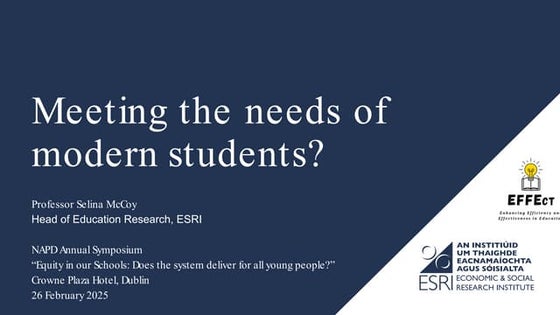



Meeting the needs of modern students?, Selina McCoyEconomic and Social Research Institute
Ėý
NAPD Annual Symposium
âEquity in our Schools: Does the system deliver for all young people?âNUTRITIONAL ASSESSMENT AND EDUCATION - 5TH SEM.pdf



NUTRITIONAL ASSESSMENT AND EDUCATION - 5TH SEM.pdfDolisha Warbi
Ėý
NUTRITIONAL ASSESSMENT AND EDUCATION, Introduction, definition, types - macronutrient and micronutrient, food pyramid, meal planning, nutritional assessment of individual, family and community by using appropriate method, nutrition education, nutritional rehabilitation, nutritional deficiency disorder, law/policies regarding nutrition in India, food hygiene, food fortification, food handling and storage, food preservation, food preparation, food purchase, food consumption, food borne diseases, food poisoningAzure Data Engineer Interview Questions By ScholarHat



Azure Data Engineer Interview Questions By ScholarHatScholarhat
Ėý
Azure Data Engineer Interview Questions By ScholarHatFunctional Muscle Testing of Facial Muscles.pdf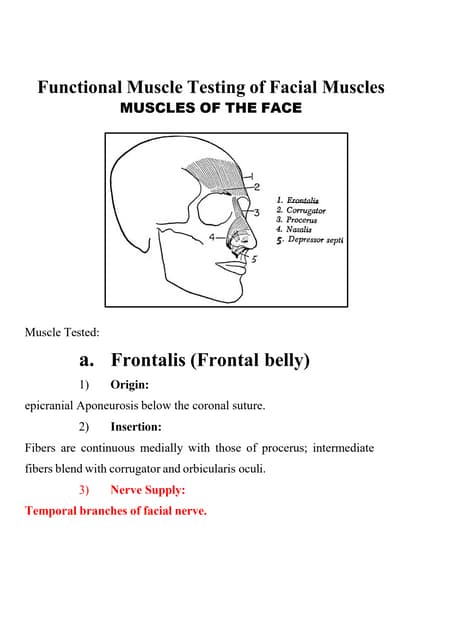



Functional Muscle Testing of Facial Muscles.pdfSamarHosni3
Ėý
Functional Muscle Testing of Facial Muscles.pdfHow to Configure Proforma Invoice in Odoo 18 Sales



How to Configure Proforma Invoice in Odoo 18 SalesCeline George
Ėý
In this slide, weâll discuss on how to configure proforma invoice in Odoo 18 Sales module. A proforma invoice is a preliminary invoice that serves as a commercial document issued by a seller to a buyer.ASP.NET Interview Questions PDF By ScholarHat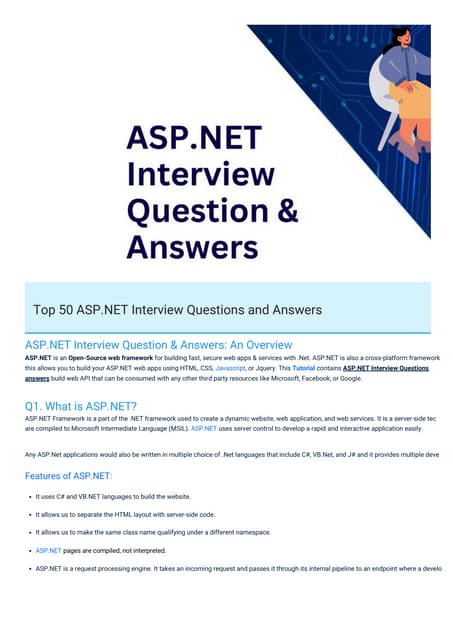



ASP.NET Interview Questions PDF By ScholarHatScholarhat
Ėý
ASP.NET Interview Questions PDF By ScholarHatAzure Administrator Interview Questions By ScholarHat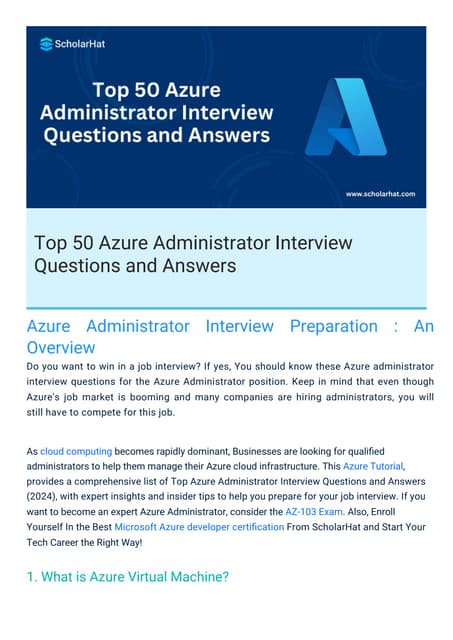



Azure Administrator Interview Questions By ScholarHatScholarhat
Ėý
Azure Administrator Interview Questions By ScholarHatFull-Stack .NET Developer Interview Questions PDF By ScholarHat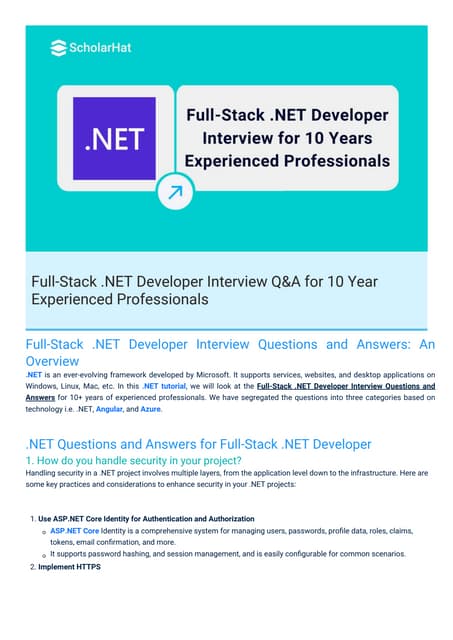



Full-Stack .NET Developer Interview Questions PDF By ScholarHatScholarhat
Ėý
Full-Stack .NET Developer Interview Questions PDF By ScholarHatHelping Autistic Girls Shine Webinar šÝšÝßĢs



Helping Autistic Girls Shine Webinar šÝšÝßĢsPooky Knightsmith
Ėý
For more information about my speaking and training work, visit: https://www.pookyknightsmith.com/speaking/One Click RFQ Cancellation in Odoo 18 - Odoo šÝšÝßĢs



One Click RFQ Cancellation in Odoo 18 - Odoo šÝšÝßĢsCeline George
Ėý
In this slide, weâll discuss the one click RFQ Cancellation in odoo 18. One-Click RFQ Cancellation in Odoo 18 is a feature that allows users to quickly and easily cancel Request for Quotations (RFQs) with a single click.AI and Academic Writing, Short Term Course in Academic Writing and Publicatio...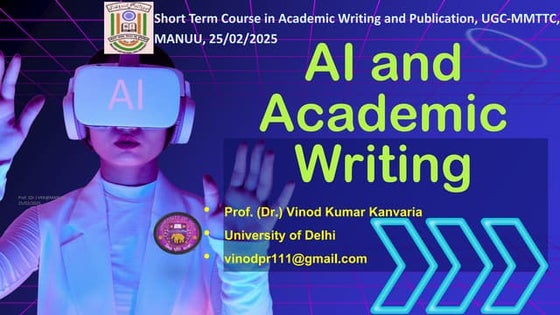



AI and Academic Writing, Short Term Course in Academic Writing and Publicatio...Prof. (Dr.) Vinod Kumar Kanvaria
Ėý
AI and Academic Writing, Short Term Course in Academic Writing and Publication, UGC-MMTTC, MANUU, 25/02/2025, Prof. (Dr.) Vinod Kumar Kanvaria, University of Delhi, vinodpr111@gmail.comDot NET Core Interview Questions PDF By ScholarHat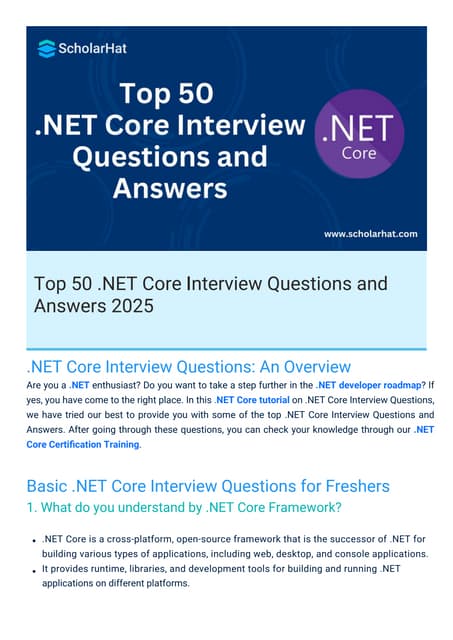



Dot NET Core Interview Questions PDF By ScholarHatScholarhat
Ėý
Dot NET Core Interview Questions PDF By ScholarHatHow to Configure Deliver Content by Email in Odoo 18 Sales



How to Configure Deliver Content by Email in Odoo 18 SalesCeline George
Ėý
In this slide, weâll discuss on how to configure proforma invoice in Odoo 18 Sales module. A proforma invoice is a preliminary invoice that serves as a commercial document issued by a seller to a buyer.AI and Academic Writing, Short Term Course in Academic Writing and Publicatio...



AI and Academic Writing, Short Term Course in Academic Writing and Publicatio...Prof. (Dr.) Vinod Kumar Kanvaria
Ėý
The 21st Skills.pptx
- 1. Facing the Future in the 21st Century Associate Professor Dr Surin Maisrikrod Vice President Global Engagement and Faculty Development (Adjunct Associate Professor in Political Science, James Cook University, Australia)
- 2. Who are facing the 21st Century? âĒ Young people, especially âĒ World population = 7.6 billion âĒ Young pop. = 1.8 billion (approx.) (10-14yrs) âĒ Thailand: 68 million (youth, 18 million)
- 3. âĒ The World Economic Forum (WeForum), in Davos, Switzerland ï measuring international competitiveness of countries (137)
- 4. âĒ 1.Switzerland âĒ 2.United States âĒ 3.Singapore âĒ 4. Netherlands âĒ 5. Germany âĒ 6. Hong Kong SAR âĒ 7. Sweden âĒ 8. United Kingdom âĒ 9. Japan âĒ 10.Finland
- 5. âĒ 11 Norway âĒ 12 Denmark âĒ 13New Zealand âĒ 14 Canada âĒ 15 Taiwan, China âĒ 16 Israel âĒ 17 United Arab Emirates âĒ 18 Austria âĒ 19 Luxembourg âĒ 20.Belgium
- 6. âĒ 21 Australia âĒ 22 France âĒ 23 Malaysia âĒ 24 Ireland âĒ 25 Qatar âĒ 5.1 Korea, Rep. âĒ 27 China âĒ 28 Iceland âĒ 29 Estonia âĒ 30 Saudi Arabia
- 7. âĒ 31 Czech Republic âĒ 32 Thailand âĒ 33 Chile âĒ 34 Spain âĒ 35 Azerbaijan âĒ 36 Indonesia âĒ 37 Malta âĒ 38 Russian Federation âĒ 39 Poland âĒ 40 India
- 9. The Future and Future Work âĒ Your future is shaped by FUTURE WORK âĒ https://www.figur8.net/2017/06/17/future- work-universities-21st-century/
- 10. âĒ Future Work â Jobs and Universities in the 21st Century (by Shen-Li Lee) âĒ Future Work â what will jobs look like in the future and what is the role of universities in the 21st Century?
- 11. âĒ According to the World Economic Forum: â65% of children entering primary school today will end up working in completely new job types that donât exist yet.â
- 12. Jobs unlikely to be taken by computer âĒ Professional athletes â who would want to watch a sport without the uncertainty of human error or ability? âĒ Teachers â a robot will never be able to replace the nurture of a real person. âĒ Hotel front desk â a robot can perform all the functions required by the hotel front desk, but it will not achieve the level of personal service that a human can provide. âĒ Chef â robots can follow recipes and cook to a greater degree of accuracy than a human, but they cannot create new recipes. What we may see is a mix of robots taking over routine chef work with the celebrity chef positions remaining open to humans. âĒ Artists â it is easy enough for a computer to paint a picture, like the creative expressions from neural networks shown below, but these pictures are unlikely to ever hold the value of a creative masterpiece from a human artist.
- 13. âĒ Future Work: The Jobs Robots will Take First âĒ So what jobs will robots take first? According to Forbes, Business Insider and Advertising Age, these ones: âĒ Middle management âĒ Sales people âĒ Accountants âĒ Report writers âĒ Journalists âĒ Drivers âĒ Fashion Models âĒ Machine operators âĒ Umpires and Referees âĒ Cashiers and Tellers âĒ Legal support staff âĒ Medical professionals and doctors
- 14. Future Work Qualities Our Children Will Need âĒ What are the qualities that determine job security? Weâre looking at qualities that machines canât replicate. âĒ In other words â creativity and people skills. âĒ The third skill that is going to be important is coding because someone has to create and maintain all these machines that will be replacing us. âĒ Aside from that, coding is a skill that is increasingly becoming a necessity even in jobs outside the technology sector.
- 15. Future Work: The Changing Role of University âĒ The changes in the labour market means our children are going to need hybrid skills â for instance, combining math and arts. âĒ New research by Burning Glass Technology analyzed millions of online job postings from the past 12 months and found that by coupling technical skills with a liberal arts education can nearly double the jobs available to graduates and offer an average salary premium of $6,000.
- 16. âĒ World Economic Forum, New Vision for Education (2015) âĒ http://www3.weforum.org/docs/WEFUSA_NewVisionforEduc ation_Report2015.pdf
- 18. âĒ Learning has two parts: 1.Acquiring specific/disciplinary knowledge 2. Acquiring generic skills (21st Century Skills, any century!)ï Reading, Writing, Numeracy, IT, Communication, Critical thinking, Analytical Thinking, Working in Teams, Understanding Information, Living with others, Caring for Society, etc.
- 19. âĒ These are skills (generic/21st century skills) that are needed for lifelong learning beyond the university. âĒ Skills that are especially needed for the 25% of the worldâs population (10-24 years of age).
- 20. How is Tertiary Education Changing to Address This? âĒ Stanford University âĒ âStanford looks for candidates who will try to make a big difference and is willing to consider applicants who have taken risks, are innovative, and dare to be different/do things differently.â âĒ Mission: Recently proposed the idea of a mission not a major: âIâm a biology majorâ is replaced by âIâm learning human biology to eliminate world hunger.â âĒ Blended learning: At Stanfordâs medical school, 70 percent of formal instruction now takes place online. This shift will become more general as Web-enhanced, blended classes become the norm. âĒ Labs: Traditional learning is now interspersed with âimpact labsâ to develop entrepreneurial skills and social awareness âĒ Entrepreneurialism as culture: Entrepreneurial DNA at the core of its culture. For example StartX is a non-profit business incubator
- 21. How do we teach these skills? âĒ Teaching by not teaching ï meaning change teaching methods âĒ Rather, it is about creating different learning environments, in which students can learn by themselves ï being autonomous learners âĒ In other words, teach students to express themselves, to discover things themselves âĒ Student-centred learning (example: children learning in Australia) âĒ Students search and re-search for themselvesï triggering their curiosity ï and therefore LEARNING
- 22. What we are trying to do at WU âĒ WU graduates = internationally competent âĒ Second to none in disciplinary knowledge âĒ Emphasize GENERIC/21st Century Skills âĒ English proficiency is emphasized (generic skill) âĒ Teach other generic skills

